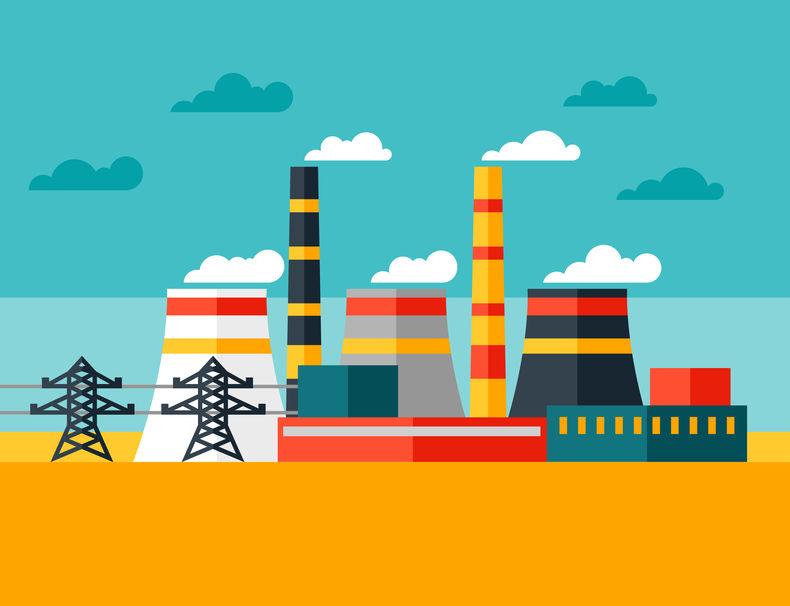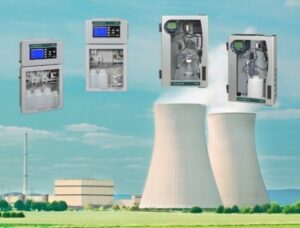A power plants’ steam and water cycle play a crucial role in energy production. The way laboratories operate and perform analyses is ever-changing. The market is demanding laboratories to become more efficient in order to reduce overall operating costs. Besides, liability associated with producing reliable data with clear traceability has increased. Turnover remains high in positions that perform the most labor-intensive functions.
Keeping your water quality at optimal levels for steam generation is essential to prevent inefficiency, premature corrosion, or turbine failures. Do you ever ask yourself: is your plant’s steam and water cycle well-balanced? In this blog post, we will show you how to ensure a well-balanced steam and water cycle in your plant.
Challenges in energy production
In the Wet Chemistry department, there are still many laboratories that are using manual techniques or outdated technology. Several issues come along with these technologies: lengthy start-up and shutdown times, carryover, hydraulic noise, clogging valves, etc. Certain analyzers require greater attention and highly skilled staff to operate and changing methods could be labor-intensive.
Water analysis of sodium, silica, hydrazine & phosphate

Higher accuracy, greater efficiency & reduced downtime
It is crucial to keep water quality at an optimal level for steam generation. This can be achieved by Wet Chemistry Analyzers. The Yokogawa WE410 Silica analyzer contains a built-in temperature control that ensures that the silica is properly being measured. “Temperature controlled reaction causes a more stable reaction and higher accuracy”, states Marko Marković, Business Development Manager at Yokogawa. Analyzer calibration is also key as calibration in the customer sample eliminates maintain the lowest practical concentrations of impurities (dissolved and suspended) throughout the cycle and specifically in the boiler and the turbine, there must be provisions to prevent impurities ingress and to remove impurities from the cycle. Impurity control requires early detection and elimination of condenser tube leaks, the air in leakage, and malfunction of makeup and condensate polishing systems”, he explains. Consequently, wet chemistry analyzers are designed to ensure the plant water and steam cycle remains well balanced.
Wet chemistry analyzers also greatly improve timely process management. “In addition to the laboratory synergy, the main advantage using on-line measurement is the possibility of timely process management, checking the integrity of boilers as well as preventive maintenance of high-efficiency steam turbines,” Marko explains. Customers’ processes, for this reason, are also significantly improved. “The analyzers on-line measurement capability contributes to faster response in plant management in preventing corrosion, premature aging of the plant and increasing the efficiency of the turbine”, Marko states. In addition to this, the main benefit is the timely management of the process leading to increased efficiency and reduced possible downtime and maintenance costs.
All in all, bad water quality causes inefficient processes and increases maintenance efforts. Yokogawa Wet Chemistry Analyzers support you in the real-time monitoring of your processes, as well as the on-line analysis of steam and water at different points in the power plant’s cycles, allowing you to proactively respond to system stresses.
Why Yokogawa’s Wet Chemistry Analyzers?
Yokogawa has provided quality control of steam and water for many decades delivering turnkey solutions with smart analyzers and customized systems. By offering a one-stop solution with complete life cycle management, Yokogawa aims to answer challenges to improve power plants safety and availability, and by helping operators to minimize and avoid risks. Yokogawa can complete product portfolios with its Wet Chemistry Analyzers – highly reliable and used for water analysis of sodium, silica, hydrazine, and phosphate, helping operators minimize and mitigate the increased failures caused by corrosion and associated component failures. This, in turn, gives operators a better insight into their plant process.
> Curious? Click here for more product information.
Picture credits: Title picture by incomible





